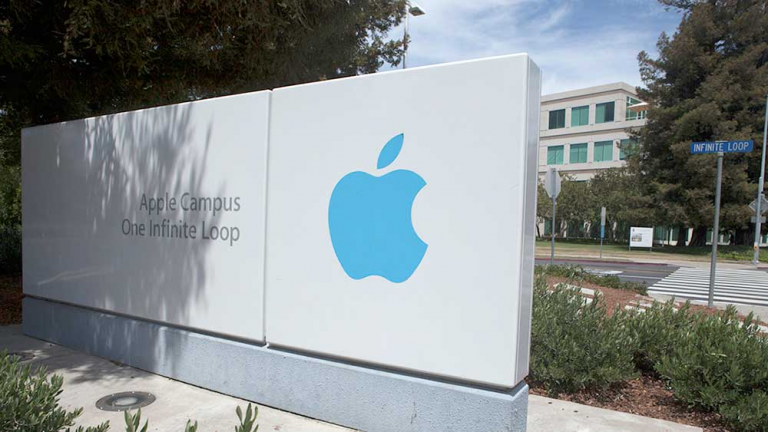
Tech giant Apple is reportedly facing a turbulent period, as its stock continues to plunge, dropping 3.7% on Monday, as fears intensified over the potential impact of President Donald Trump’s tariff policies.
The Cupertino giant’s stock has now plunged 19% over three consecutive trading sessions, erasing a staggering $638 billion in market value. Analysts warn that Apple remains one of the most vulnerable companies in the escalating trade war, largely due to its heavy dependence on China, which is now subject to tariffs as high as 54%.
Reports reveal that Trump on Monday stated that the U.S. will apply an additional 50% tariff on imports from China if the Asian nation doesn’t withdraw its plan to impose a retaliatory 34% import fee on American products. Although Apple has diversified its production footprint to include India, Vietnam, and Thailand, these nations are also caught in the net of new U.S. tariffs under Trump’s sweeping trade plan.
Register for Tekedia Mini-MBA edition 19 (Feb 9 – May 2, 2026).
Register for Tekedia AI in Business Masterclass.
Join Tekedia Capital Syndicate and co-invest in great global startups.
Register for Tekedia AI Lab.
Among the seven major tech giants, Apple is bearing the brunt of the market’s anxiety. On Monday, it was one of only three megacap tech stocks to decline, alongside Microsoft and Tesla.
Analysts at JPMorgan Chase predict that Apple could raise its prices by 6% across the world to offset the U.S. tariffs. Also, Barclays analyst Tim Long noted that he expects the tech giant to increase the prices of its products, or it could suffer as much as a 15% cut to earnings per share.
Recall that last week, Morgan Stanley analysts stated that Apple could absorb additional tariff costs of about $34 billion annually. Analysts believe that Apple may be forced to choose between raising prices or absorbing the additional costs brought on by the tariffs. According to UBS estimates, the price of Apple’s top-tier iPhone could jump by roughly $350, or about 30%, from its current price of $1,199 if the full weight of the tariffs is passed on to consumers.
Tim Long, an analyst at Barclays, noted that while Apple could consider raising prices, the alternative could be a significant 15% hit to its earnings per share. He also suggested that the company might look to restructure its supply chain, sourcing more imports from countries facing lower tariff rates.
In the broader tech space, other giant tech companies are also feeling the pressure of the new tariff policies. Last week, Meta Platforms and Amazon fell about 9% each, while Nvidia dropped nearly 8%. Giant EV maker, Tesla, slumped more than 5%, while Microsoft and Alphabet both fell about 2% and 4%, respectively.
Notably, analysts predict that makers of PCs and AI servers will be hit hard as well. It is understood that the U.S. imported nearly $486 billion in electronics last year, the second-biggest sector for imports, after machinery, according to Census Bureau data. Therefore, in line with Trump’s recent tariff policies, PC makers, including Dell and HP, could face cost increases of about 10% – 25%, adding between $200 and $500 in costs per unit.
Amidst the chaos from his controversial Tariff policies that sent shockwaves to stock markets across the globe, Trump has held firm on his aggressive global tariff plans, with an initial unilateral 10% tariff went into effect last week Saturday. Meanwhile, Wall Street hoped for progress on negotiations between the administration and other countries or news of a possible delay in reciprocal tariffs slated for April 9.
The plan has already received widespread backlash in corporate America. JPMorgan Chase CEO Jamie Dimon said Monday that the new levies will hike prices on domestic and imported goods and pressure the slowing U.S. economy. Also, many car companies have already announced a pause in shipments, price hikes, and other measures.
Nissan Motor’s luxury Infiniti brand has indefinitely paused production of two Mexico-built crossovers for the U.S. in response to the newly imposed 25% tariffs on imported vehicles by Trump. Also, in a memo to the brand’s retailers, Infiniti Americas Vice President Tiago Castro said QX50 and QX55 output for the U.S. is halted “until further notice” due to the tariffs.
“I don’t want anything to go down, but sometimes you have to take medicine to fix something,” Trump told reporters on Sunday night, downplaying the recent market meltdown.
The tariffs, which threaten to destabilize the world trade order and unsettle businesses, mark a sharp reversal from just a few months ago when hopes of business-friendly policies under the Trump administration pushed U.S. stocks to record highs.
Looking Ahead
With the imposed Tariff policies, Donald Trump sees an opportunity to “change the fabric” of the United States.
But even as the president, administration officials, and key allies say he will not back down from his tariff plan. However, they are looking for ways to ease the concerns of wary supporters. Two administration officials confirmed that members of the administration were taking calls from business groups and setting up private meetings to allay concerns.
“The Trump administration maintains regular contact with business leaders, industry groups, and everyday Americans, especially about major policy decisions like President Trump’s reciprocal tariff action,” White House spokesman Kush Desai said in a statement.



